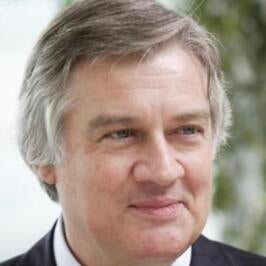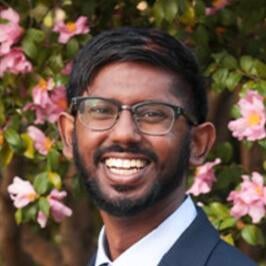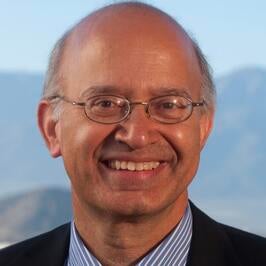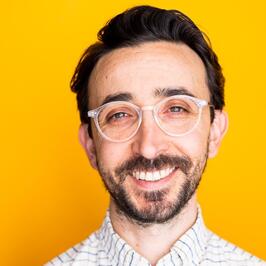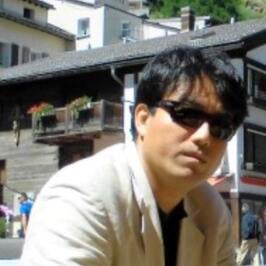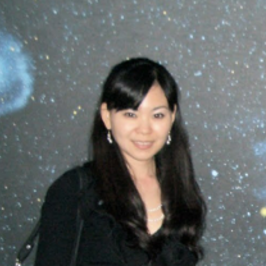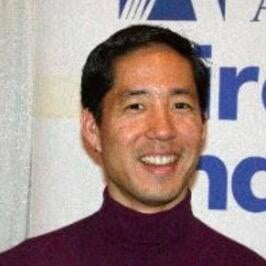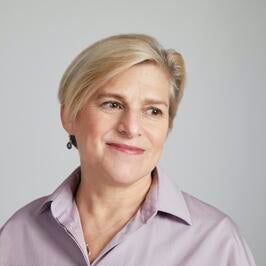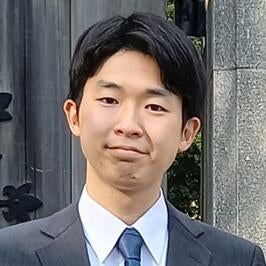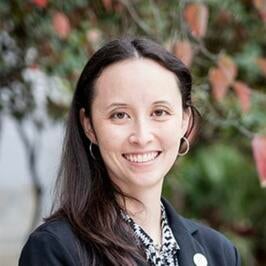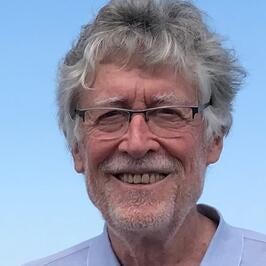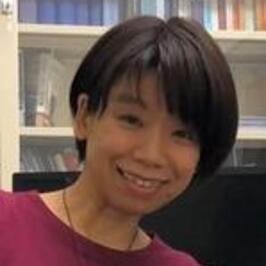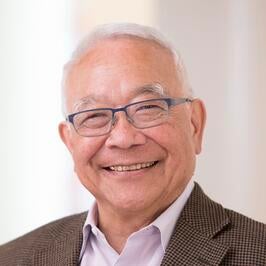Invited Experts
This diverse set of guest experts from Japan and the U.S. provided excellent insight into science policy in each country.
Dr. Richard Dasher has been Director of the US-Asia Technology Management Center at Stanford University since 1994. He served concurrently as the Executive Director of the Center for Integrated Systems in Stanford's School of Engineering from 1998 - 2015. His research and teaching focuses on the flow of people, knowledge, and capital in innovation systems, on the impact of new technologies on industry value chains, and on open innovation management. Dr. Dasher serves on the advisory boards for national universities and research institutions in Japan and Thailand. He is on the selection and review committees of major government funding programs for science, technology, and innovation and in Canada and Japan. He is an advisor to start-up companies, business accelerators, venture capital firms, and nonprofits in Silicon Valley, China, Japan, and South Korea. Dr. Dasher was the first non-Japanese person ever asked to join the governance of a Japanese national university, serving as a Board Director and member of the Management Council of Tohoku University from 2004 - 2010. Dr. Dasher received M.A. and Ph.D. degrees in Linguistics from Stanford University. From 1986 – 90, he was Director of the U.S. State Department’s Advanced Language and Area Training Centers in Japan and Korea that provide full-time curricula to U.S. and Commonwealth Country diplomats assigned to those countries.
Dr. Andrew Dawson did his graduate work on nanostructuring materials for Lithium ion batteries at the University of California, Los Angeles. He also helped develop x-ray techniques working at the Stanford Synchrotron Radiation Lightsource. In addition to his graduate work, he was heavily involved in nanoscience outreach through the California NanoSystems Institute and obtained a Leader in Sustainability certificate at the Institute of the Environment and Sustainability where he interfaced with graduate students and professionals across the campus about sustainability issues. Internationally, Dr. Dawson researched at Chalmers Institute of Technology in Gothenburg, Sweden and won a presentation award at a conference at Jilin University in China. After graduate school, he participated in the CCST Science and Technology Fellows program where he was placed in the Senate Housing Committee. Dr. Dawson now works on issues related to housing and homelessness for the state of California.
Dr. Anil Deolalikar is a Professor of Economics and Founding Dean of the School of Public Policy at the University of California, Riverside. He also serves as the Chair of the Board of Directors of the UC Global Health Institute and of the One Health Trust (Washington DC and New Delhi). He taught previously at the University of Washington, University of Pennsylvania, and Harvard University, and served as Lead Human Development Economist for the World Bank in New Delhi from 2002-03.
Dr. Deolalikar is a development economist who has published five books and nearly 75 articles on the economics of child nutrition, health, education, and poverty and social protection in developing countries. He is co-editor of The Journal of Asian and African Studies and The Journal of Developing Societies. He is an elected Fellow of the American Association for the Advancement of Science, and served as an advisory board member to the Gates Foundation on the use of cost-benefit analysis in health and development as well as to the Abe Fellowship Program run by the Japan Foundation and the Social Science Research Council. Early in his career, Deolalikar was a recipient of the Robert McNamara Fellowship for International Development awarded by the World Bank.
Dr. Deolalikar has served as an adviser to several developing-country governments and international organizations, including the ADB, World Bank, UNDP, and USAID, on a variety of research and policy projects.
He obtained his BA summa cum laude in economics from Harvard University, diploma in Economics from Cambridge University, Ph.D. from Stanford University, and a postdoctoral fellowship in Economic Demography from Yale University.
Mycah Hogan is an educator and theater-maker who works with performers to help them discover their best, most authentic and enthusiastic selves. He first encountered the art of clown at the International Theater Workshop in Amsterdam, where Mycah began a lifelong study of the comic world with Christopher Bayes. Mycah credits a number of other world-class teachers as major impacts on both his pedagogy and his approach to making work for the last 15 years. Big ups to Kevin Kuhlke (Acting & Directing), Mary Overlie (Six Viewpoints), Emmanuelle Delpech (Clown), Quinn Bauriedel (Improvisation), Anya Saffir (Practical Aesthetics), and Justine Wolf Williams (Play) just to name a few.
As an actor, Mycah has appeared on stage in New York (off-Broadway: Roundabout, the New Group), regionally (Williamstown Theater Fest), and locally (The Wilbury Group, The Gamm Theater, Trinity Repertory). He has acted alongside talents likeSarah Paulson, John Cullum, Jeremy Strong, Andrew Garfield, Maggie Gyllenhaal, Roger Rees, Lily Rabe, Jason Butler Harner, and Lili Taylor, among others; and has been directed by Academy Award nominee Kathleen Turner and Tony nominee Scott Elliott.
Mycah is on faculty at Brown/Trinity Rep’s MFA Program, where he teaches Clown and Physical Play. He is also the Dean of Expeditions and Enrichment at a public charter middle school in Providence, RI, and serves as the Education Programs Manager for The Wilbury Theatre Group, where he can be found on Monday nights teaching his hit class EMBODIED ACTION: An Acting Class for Literally Anyone.
Tomo Honda has represented and provided strategic counsel to a wide range of governmental, corporate, political, international, and personal clients, with his particular expertise in government relations strategy, public policy analysis, regulatory issues and stakeholders mapping, advocacy planning and implementation, media and community relations, CSR management, political affairs and polling, international business, reputation and crisis management, and senior stakeholder engagement.
Prior to his move into government relations consultancy, as an international business professional, Honda was working in Paris, Frankfurt am Main, and Stuttgart for four years in the field of international marketing and corporate affairs.
In Japanese politics, Honda was the Democratic member of the Fukushima Prefectural Assembly for ten years and won three elections in a row to represent the constituency of Nihonmatsu city in Fukushima, Japan. While there, he was also nominated as the President of the National Federation of Members of the U39 Prefectural Assemblies from 2012 to 2013, and nurtured an unrivaled network of contacts throughout Japanese prefectural and municipal government offices.
Honda studied International Business at American College of Switzerland , then received a BA degree in History from Suffolk University (USA), and has earned an MA degree in International Relations and Diplomatic studies from the University of Westminster (UK) and an MBA degree from EDC Paris Business School. Honda speaks native Japanese and speaks English, French, and German.
Dr. Kakazu is an astronomer and public outreach specialist at the Subaru telescope in Hawaii. After obtaining her PhD at the Institute for Astronomy, University of Hawaii at Manoa in 2008, she worked in Paris, France (Institut d’Astrophysique de Paris), California (California Institute of Technology, Caltech), and Chicago (University of Chicago) as a researcher. As a public outreach specialist at the Subaru telescope, Dr. Kakazu coordinates outreach events and gives talks for the public and students. Her research is primarily about the galaxy formation and evolution using multi-wavelength imaging and spectroscopic data. She is a member of the COSMOS survey and also the Dark Energy Survey. Dr. Kakazu is an Okinawan native, and the rst astronomer from Okinawa.
Kei Koizumi is the Principal Deputy Director for Policy for the White House Office of Science and Technology Policy (OSTP). Most recently he was OSTP Chief of Staff for the first nine months of the Biden-Harris Administration and concurrently Acting Director for OSTP for the first five months. Immediately prior to the administration he was Lead for the National Science Foundation Agency Review team and a member of the OSTP Agency Review team for the Biden-Harris transition. Prior to the transition, he was Senior Advisor for Science Policy at the American Association for the Advancement of Science (AAAS). In the Obama-Biden administration, Koizumi was Assistant Director for Federal R&D and Senior Advisor to the National Science and Technology Council at OSTP. He was also the OSTP representative to the White House Initiative on Asian Americans and Pacific Islanders. Previously, he was the Director of the AAAS R&D Budget and Policy Program. Born in Providence, Rhode Island, he is from Columbus, Ohio, and now lives in Washington, DC. He is a graduate of Boston University and The George Washington University. He is a Fellow of the American Association for the Advancement of Science.
Sarah Lubman is a journalist and former corporate communications executive with a long history in Japan. She graduated from UC Berkeley with a double major in Japanese and religious studies, attended the Inter-University Center for Japanese Language Studies in Yokohama and has a master's in Japanese literature from UCLA. Sarah was a journalist for 17 years, about a third of which was spent in Tokyo and Beijing. She spent the following 15+ years as a corporate communications executive, including 2.5 years at the SoftBank Group and 13 years at the Brunswick Group, an international consultancy, where she advised a number of Japanese companies on communications regarding transactions and shareholder activists. She has a feature article coming out in National Geographic next month about how aging is reshaping Japan, altering every aspect of life there - from Japan's physical appearance to its social policies, from business strategy to the labor market, from public spaces to private homes. She believes the rest of the world should be paying more attention to how Japan is dealing with aging.
Jessie March is a theater maker and educator based in Providence, Rhode Island. She is interested in theater and performance as a pedagogical tool in the classroom, with a particular focus on Shakespeare as a tool for opening up the self. Jessie is a graduate of Skidmore College where she studied Theater and Gender Studies and many other fabulous things. Her experience as a teaching artist includes working with Trinity Rep, the Gamm Theatre, and the Wilbury Theater Group. She considers working with students to be one of the many wonders of the world.
Kohei Oki graduated from the Graduate School of Arts and Sciences, University of Tokyo with a master’s degree. While at university, he studied for a year at the Department of Philosophy of the University of Cologne, Germany. His interest in foreign cultural policy and cultural exchange led him to work at the Japan Foundation. He is in charge of intellectual exchange programs between Japan and the U.S. as well as between Japan and Germany.
Dr. Naomi Ondrasek is a Senior Consultant on the Environmental Safety and Toxic Materials Committee in the California State Assembly, where she reviews, analyzes, amends, develops, and drafts legislation. Previously, she was a Senior Researcher and Policy Advisor at the Learning Policy Institute (LPI)—a non-profit, non-partisan education research and policy think tank—where she worked to bring evidence to policy to support equitable learning opportunities for children. In addition to writing on a range of topics, including the science of learning and development, Naomi also led LPI’s COVID-19 Safe School Reopening team and served as research lead on the 2021 National Safe School Reopening Summit. Before LPI, Ondrasek spent a decade conducting research in behavioral neuroscience and served as a science fellow with the California State Assembly Committee on Education.
Dr. Albrecht Wagner is a particle physicist from Germany. He received his PhD from the University of Heidelberg and worked as a researcher at the University of Heidelberg, the Lawrence Berkeley Laboratory (USA), DESY and CERN. In 1984 he became Professor at the University of Heidelberg and in 1991 at the University of Hamburg, where he was also appointed Director of Research at DESY. From 1999 until 2009, Dr. Wagner was Chairman of the DESY Board of Directors. He played a critical role as the leader of several international consortia, including as Chairman of the TESLA Technology Collaboration Board from 2005 to 2009 and as Chairman of the International Committee for Future Accelerators (ICFA) from 2006 to 2008. He has, and continues, to serve on many advisory boards and councils. From 2007 to 2008 he was Vice President of the Helmholtz Foundation; since 2008 he has been the Chairman of the Council of Hamburg University; and since 2010 a member of the Board of the Joachim Herz Foundation. He previously served as the Chair of the Board of Councilors at OIST Graduate University. Dr. Wagner is the holder of multiple honorary degrees and has been the recipient of many awards, including the Distinguished Service Cross of Merit of the Federal Republic of Germany.
Dr. Kazumi Wakita is a professor of School of Marine Science and Technology at Tokai University. She obtained Ph.D from Graduate School of Agriculture and Life Sciences, The University of Tokyo. She has been working on integrated coastal management which involves project management of Partnerships in Environmental Management for the Seas of East Asia (PEMSEA) as a programme ocer of United Nations Development Programme (UNDP). She is a co-lead of Task Team on Harmful Algae and Fish Kill of Intergovernmental Panel on Harmful Algal Blooms of Intergovernmental Oceanographic Commission (IOC) of UNESCO and a co-lead of Harmful Algal Blooms Programme of IOC/WESTPAC. She serves as one of the members of several councils and committees at both national and local levels in Japan, such as Council for Ports and Harbors of Kita-kyushu City, Council for the Protection of Cultural Properties of Shizuoka Prefecture, Committee for Coordination of Fisheries in Seto Inland Sea of Fisheries Agency. She served as a co-chairperson to compile a joint proposal for improving the integrated management of Japan's oceans and coastal zones by the Japan Society of Ocean Policy and Japanese Association for Coastal Zone Studies in 2021. Her research interests encompass socio-psychological aspect and policy framework in ocean and coastal management.
Dr. Keith R. Yamamoto is President-Elect of AAAS and also vice chancellor for science policy and strategy, director of precision medicine, and professor of cellular and molecular pharmacology at UCSF. After earning his PhD from Princeton University, Yamamoto joined the UCSF faculty in 1976. His research has focused on signaling and transcriptional regulation by nuclear receptors; he uses mechanistic and systems approaches to pursue these problems in pure molecules, cells, and whole organisms. He has led or served on numerous national committees focused on public and scientific policy, public understanding and support of biological research, science education, and diversity, equity, inclusion and anti-racism. Dr. Yamamoto serves on the Board of Councilors of the Radiation Effects Research Foundation, the joint US-Japan research organization responsible for studying the medical effects of radiation and associated diseases in humans for the welfare of the survivors and all humankind. The organization's scientific laboratories are located in Hiroshima and Nagasaki, Japan, and he contributes to overseeing governance by the Board of Directors and the Scientific Advisory Board. he is currently President Elect of the American Association for the Advancement of Science (AAAS), chairs the Coalition for the Life Sciences, co-chairs the NASEM Roundtable on Aligning Incentives for Open Science, and sits on the Board of Directors of the Public Library of Science, the Board of Directors of Rapid Science, the Governing Board of the California Institute for Regenerative Medicine, and the Advisory Board for Lawrence Berkeley National Laboratory. He has chaired or served on many committees that oversee training and the biomedical workforce, research funding, and the process of peer review and the policies that govern it at NIH. He was elected to the National Academy of Sciences, the National Academy of Medicine, the American Academy of Arts and Sciences, and the American Academy of Microbiology, and is a fellow of AAAS.
